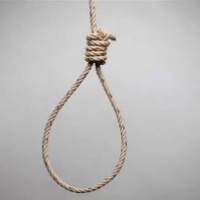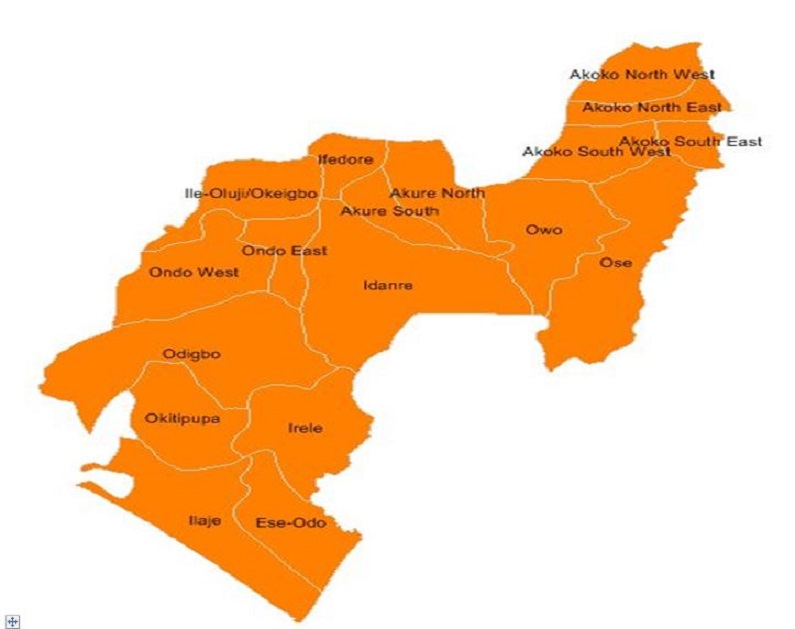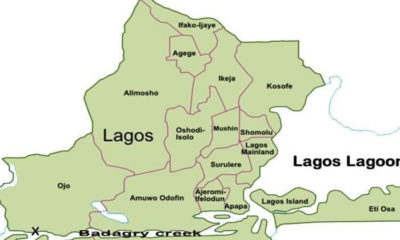Other News
Why Men Commit Suicide In Africa – CDC Advisor

Advisor for Non-Communicable Diseases, Injuries, and Mental Health at the Africa CDC, Dr. Naeem Dalal has pointed to cultural stereotypes as a factor contributing to the high rate of male suicides in Africa.
Dalal disclosed this during a session on Youth Mental Health in Africa at the International Conference on Public Health in Africa (CPHIA) in Lusaka, Zambia, on Tuesday.
He highlighted how these stereotypes hinder African men from seeking emotional and mental support.
In his view, this is imperative due to statistics highlighting that a higher number of men in Africa die by suicide.
The CPHIA, held annually, is orchestrated by the Africa Centres for Disease Control and Prevention (Africa CDC), and the 2023 installment is being hosted by the Government of Zambia.
The theme for CPHIA2023 is “Breaking Barriers: Repositioning Africa in the Global Health Architecture.”
Scheduled from November 27 to November 30, this annual event focuses on addressing health challenges and reshaping Africa’s position in the global health landscape.
Dalal, a Psychiatrist based in Lusaka, Zambia, specializes in youth mental health. He currently serves as the National Mental Health focal person and specialist for the Zambia National Public Health Institute.
He said: “There is more active suicide amongst men. When we talk about suicide, we need to understand two things. There’s suicide which is passive and suicide, which is active.
“Active suicide is where you die by suicide. Passive suicide is where you have thoughts of dying by killing yourself or harming yourself, but you don’t go ahead with those thoughts. So, that’s passive suicide.
“Now, when we talk about statistics specifically for men on the continent of Africa, more men die by suicide.
So, there’s more active suicide amongst men. For every 50 per cent of it, it is amongst the men that die and this is because men use more lethal with dying.”
Dalal underscored several reasons driving men to opt for suicide instead of seeking assistance for their mental health concerns.
“It’s also important to understand that men do not reach out for help for mental health concerns or issues that they face because of the culture that we have in Africa, where men are supposed to be supportive.
“Men are supposed to be responsible and breadwinners in communities. Showing that part of vulnerability is not something that is accepted in our communities across the African continent in general.
“And not just to stereotype it, but also to be factual that men are also taught not to be reaching out for help growing up as boys and boys are told to be strong and responsible.
“So, this also causes an issue for men to reach out for mental health services, even when they are there.
Dalal proposed several solutions aimed at decreasing the incidence of suicide across the continent.
“However, the solutions and the implementations that Africa CDC is currently carrying out is in the non-communicable diseases, injuries and mental health strategy.
“They have flagship programmes that are looking at mental health advocacy for communities, looking also at men’s health.
But in addition, there are also mental health fellowships that are coming up, where they will build capacity amongst healthcare workers to also seek mental health as a profession.
“This is because the other challenge is in Africa; healthcare workers do not want to do mental health speciality.
“These are the implementations that we are carrying out.
“We are also promoting more advocacy amongst the younger generation because the third leading cause of death by suicide is from the ages of 15 to 29.’’
According to Dalal, a lot of advocacy is ongoing, especially by the Africa CDC through the African Union.
“We are also advocating policy changes, where we make mental health applicable to the current realities that we are living,” he said.
Other News
JUST IN: Nine Abducted Surveyors Freed In Ondo After N20m Ransom Payment

Nine surveyors abducted in the Akure North Local Government Area of Ondo State have been released after their families paid a ransom of N20 million.
Recall that the victims were kidnapped a week ago while working at a site in Ilu-Abo.
Their captors initially demanded N100 million for their release.
However, following negotiations, market women intervened, pleading for a reduction to N50 million.
READ MORE: Ondo Market Women Block Governor’s Office Over Nine Abducted Surveyors
The kidnappers initially rejected the appeal before eventually settling for N20 million.
Confirming their release, Pastor Ajibade Owolanke, brother to the Ejemikin of Akure, High Chief Oluwole Omotayo, said: “The victims have joined their individual family members.”
It was gathered that after regaining their freedom, the surveyors were taken to different hospitals for medical examinations.
The abduction sparked widespread outrage in the state, prompting market women and youths in Akure to stage a protest.
The demonstrators urged Governor Lucky Aiyedatiwa and security agencies to take decisive action against the rising wave of kidnappings in the state.
Security authorities have yet to comment on any arrests related to the incident.
More to follow………..
Other News
Reps Move To Ban Porn Websites, Order Immediate Shutdown

The Nigerian government has taken a decisive step to curb access to pornographic content in the country, as the House of Representatives directed the Nigerian Communications Commission (NCC) to enforce a total shutdown of porn websites nationwide.
The directive, issued during plenary on Tuesday, mandates internet service providers to block access to such sites, with penalties for non-compliance.
The motion was sponsored by Dalhatu Tafoki, representing the Faskari/Kankara/Sabuwa Federal Constituency, who emphasized the need to protect societal values.
READ MORE: House of Reps Launches Investigation Into Osun Crisis
“I would like to move a motion for the need to block internet websites hosting pornographic content and sanction the internet service providers responsible for the posting,” Tafoki stated.
“Nigeria is a highly religious country, and all the major religions in the country forbid nudity and obscenity in any form.”
He further highlighted concerns raised by psychologists and sociologists regarding the negative impact of pornography, stating that it leads to “promotion of adultery, prostitution, and other promiscuous behaviours, leading to addiction, escalation, and desensitisation, change of attitude towards oneself and family.”
The House adopted the motion and tasked its Committees on Communications and Legislative Compliance with overseeing implementation, with a report expected within four weeks.
Speaker Tajudeen Abass reinforced the stance, warning that internet service providers who fail to comply will face sanctions.
Other News
Renowned Nigerian Writer Mabel Segun Dies At 95
Nigerian literary giant, sports champion, and broadcaster, Mabel Segun, has passed away at the age of 95.
Her family confirmed her demise in a statement released late Thursday, stating that she breathed her last in the early hours of the day.
“It is with gratitude to God for a life well spent in the pursuit of excellence in Literature, Broadcasting and Sports that we announce the passing of our beloved mother, grandmother, and great-grandmother, Mabel Dorothy Okanima Segun (née Aig-Imoukhuede),” the statement read.
READ ALSO: Will Jennings, Co-Writer Of ‘My Heart Will Go On’ Is Dead
A distinguished writer, Segun’s impact on Nigerian literature and society was profound. Born on February 18, 1930, she was a trailblazer in multiple fields, earning accolades as a novelist, broadcaster, diplomat, and sportswoman.
She pursued higher education at the University College Ibadan (now the University of Ibadan), graduating in 1953 with a degree in English Literature, Latin, and History.
This academic foundation propelled her into an illustrious career that spanned decades, influencing generations of writers and intellectuals.
Beyond her literary achievements, Segun was also a tennis champion, further showcasing her versatility and determination.
Her contributions to broadcasting and diplomacy cemented her status as a multi-talented icon in Nigeria’s cultural and intellectual landscape.
Her family noted that funeral arrangements would be announced at a later date.
Mabel Segun leaves behind a remarkable legacy of excellence and service, remembered not only for her literary prowess but also for her pioneering spirit in Nigerian academia, sports, and public service.














